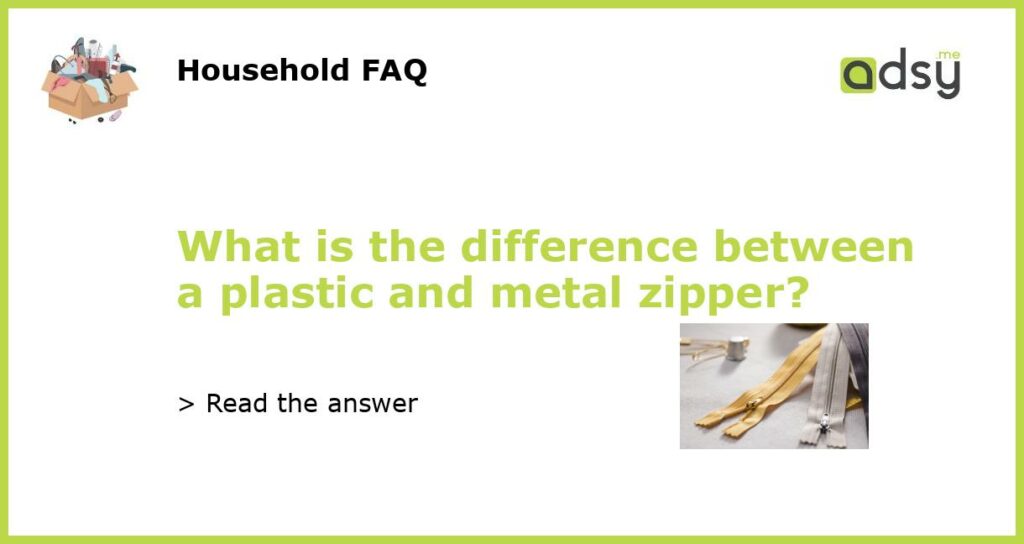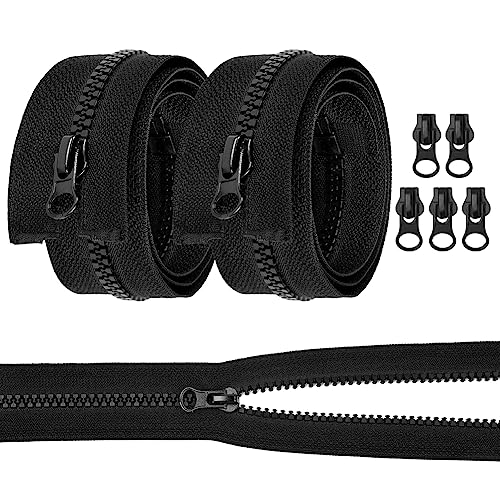Plastic vs Metal Zippers: Understanding the Key Differences
When it comes to closures, zippers are an essential part of various products, including clothing, bags, and accessories. Zippers can be made from different materials, such as plastic and metal. Understanding the difference between these two types of zippers can help you make an informed decision when selecting the right one for your needs. This article explores the key differences between plastic and metal zippers.
Material Composition
One of the main differences between plastic and metal zippers lies in their material composition. Plastic zippers, as the name suggests, are made from various types of plastic, such as polyethylene (PE) or polypropylene (PP). These zippers are typically molded and have interlocking plastic teeth.
Metal zippers, on the other hand, are made from metal materials, such as brass or stainless steel. They consist of individual metal teeth that interlock to form the closure. Metal zippers are known for their durability and strength, making them suitable for heavy-duty applications.
Aesthetic Appeal
Another important difference between plastic and metal zippers is their aesthetic appeal. Plastic zippers are available in a wide range of colors and finishes, allowing for more versatility in design. They can blend seamlessly with the fabric or garment they are attached to, providing a cohesive look.
Metal zippers, on the other hand, can add a touch of sophistication and elegance to a product. They are often used in high-end fashion items and luxury accessories due to their shiny appearance and sturdy construction.
Durability and Strength
When it comes to durability and strength, metal zippers have the upper hand over plastic zippers. Metal zippers are known for being sturdy and resistant to wear and tear. They can withstand heavy usage and are less prone to breaking or deforming, making them ideal for products that require a strong closure.
Plastic zippers, while not as durable as metal zippers, can still offer sufficient strength for many applications. However, they may not withstand the same level of stress and strain as metal zippers. Plastic zippers are more suitable for lighter items or products that do not require high tensile strength.
Flexibility
Flexibility is another factor to consider when choosing between plastic and metal zippers. Plastic zippers tend to be more flexible than metal zippers, allowing for easier movement and manipulation. This flexibility can be beneficial in certain applications, such as garments or bags that need to bend or stretch.
Metal zippers, on the other hand, are less flexible due to their rigid structure. While they may not bend or stretch as easily as plastic zippers, their rigidity can provide added stability and security, particularly for heavy-duty applications.
Cost
Cost is often a significant consideration when selecting zippers for products. Plastic zippers generally tend to be more affordable compared to metal zippers. The manufacturing process and materials used for plastic zippers are typically less expensive, resulting in a lower price point.
Metal zippers, on the other hand, can be more expensive due to the higher cost of materials and the additional steps required in their manufacturing process. The shiny and luxurious appearance of metal zippers also contributes to their higher price.
In conclusion, plastic and metal zippers each have their own advantages and characteristics that make them suitable for different applications. Plastic zippers offer a wide range of colors and finishes, flexibility, and affordability. Metal zippers, on the other hand, provide durability, strength, and an elevated aesthetic. Consider the specific requirements of your product and choose the zipper type that best meets your needs.






